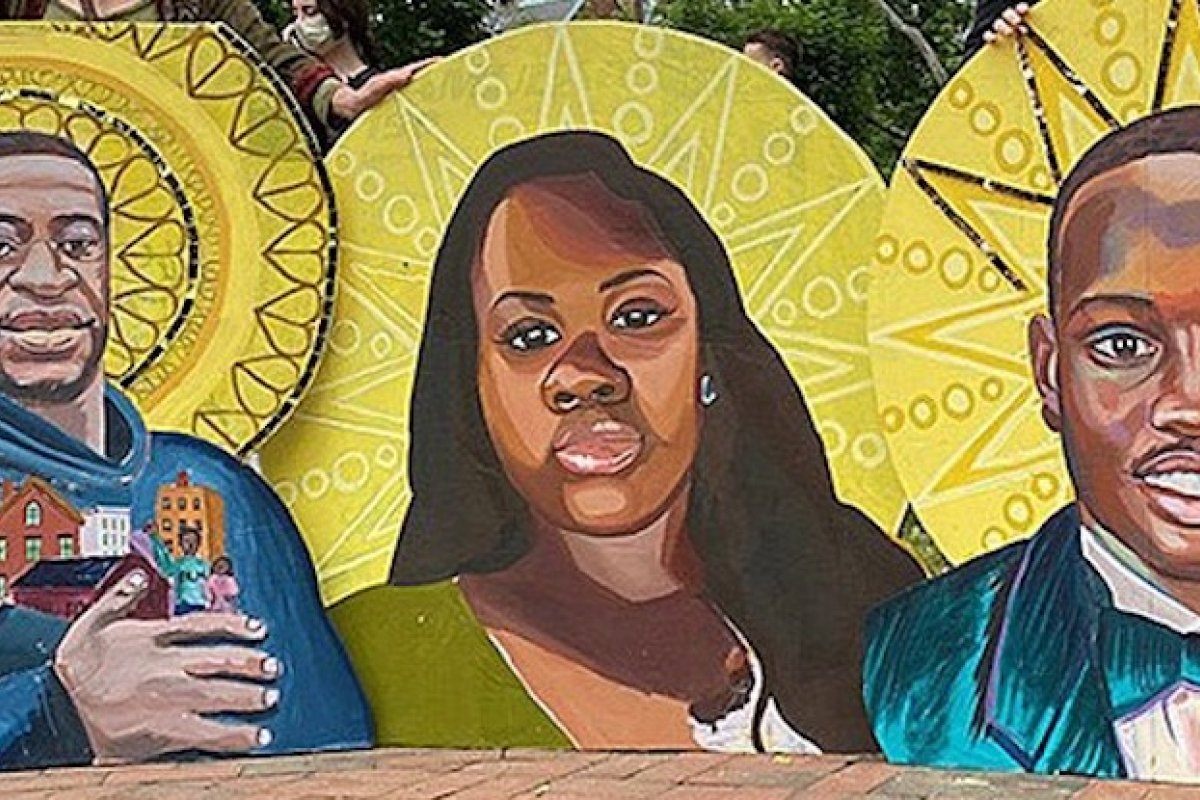
The Difference between Heroes and Martyrs
When we memorialize victims of police violence, their past actions are irrelevant
Victims of police shootings have become icons. Their names adorn the jerseys, helmets, hats, shirts, and face masks of famous athletes. Their faces are on murals, magazine covers, billboards, protest signs, and art installations. In some cases, they are literally icons; artists have painted their likenesses in the centuries-old style of depicting Christian saints.
In response to this, critics have pointed out that some of these victims were not saints; they had criminal records, were using drugs at the time of their deaths, or were wanted for serious crimes. Critics argue we should not be quick to treat these victims as heroes. Some of the claims they bring forward are slanderous, some are accurate. But all of them are irrelevant. A better understanding of martyrdom in religious traditions can help us understand why.
Before I explain, it’s worth clarifying: these criticisms of victims follow an all-too-familiar pattern. As Christian ethicist Reggie Williams observes, these events and their aftermath tend to follow a sort of script. “First there is a blatant killing of an unarmed Black person by a state official or vigilante or a lethal, disproportionate response to a baseless fear,” Williams writes. “This is followed by the corresponding hashtag moment for the Black victim’s name. The killer’s defenders inevitably discover some form of disparaging information about the character or behavior of the deceased. This newfound info is used to justify the killer and implicate the dead. The Black victim is subsequently tried in the court of public opinion, using the evidence of the racial script as evidence against them in their own killing.” It matters that many people’s first instinct when learning of a police shooting—especially when the victim is Black or Latino—is to examine the life of the victim looking for flaws. This tendency follows and perpetuates racist logic. But it also misunderstands the meaning of martyrdom and the role victims’ memories play in galvanizing protest.
The word “martyr” comes from a Greek word meaning “witness,” as in an eyewitness offering testimony at a trial. Similarly, the term for martyr in Arabic—shahīd—originally referred to courtroom witnesses, then to people who died for their faith, and has now expanded to include victims of political violence. But even as meanings changed, in both Christian and Islamic contexts the emphasis on testimony has remained important.
In a broad sense, a martyr is a person whose death at the hands of others testifies to a larger truth. The martyr stands as an indictment of the forces of opposition that deny or suppress this truth. Their death exposes the senseless violence of the forces of opposition, and their lasting memory stands as a reminder to persevere in the face of repression. Those who remember the martyr remember these truths, and so the martyr has victory even in death.
In his book about martyrdom in Judaism, Christianity, and Islam, Rubén Rosario Rodríguez argues that martyrs offer a “countertestimony” to the narratives that justify imperial violence. Painting a mural of a martyr proclaims that violence may end one person’s life but is ultimately powerless against the truth. In a world where victors write the history books, remembering victims is a form of resistance.
In a viral video about George Floyd, conservative commentator Candace Owens bemoaned the tendency “to turn criminals into heroes overnight,” adding that “George Floyd is not my martyr.” In an interview retweeted by the president, Owens added, “The fact that [Floyd] has been held up as a martyr sickens me.” But there is a significant difference between martyrdom and heroism.
Heroes are celebrated for what they achieve, while martyrs are commemorated for what they symbolize. It’s worth contrasting the ways Ruth Bader Ginsburg and Breonna Taylor are currently being memorialized. There are some clear similarities: both Taylor and Ginsburg are on murals, magazine covers, protest signs, and art installations. But while Ginsburg is being honored for what she accomplished, Taylor’s memory stands as an indictment against the system that permits police violence—especially against Black Americans—to continue without accountability.
Ginsburg is held up as someone to be emulated. Taylor’s life certainly may also be worthy of emulation, and people rightfully mourn what she could have accomplished had she not been murdered at age 26. But her accomplishments are not the reason why hundreds of thousands of Americans insist we say her name. Whatever the events of her life, her death testifies to a truth that cannot be ignored and must not be forgotten.
Owens is wrong to confuse the memorialization of victims with the commendation of heroes. What may superficially seem like efforts to treat Taylor and others as heroes are rather desperate attempts to drive home that these victims were ordinary people. It’s not that protesters are insisting George Floyd was exceptional. Precisely the opposite. Only when people recognize him as a relatable human being will the countertestimony of his murder resonate among indifferent Americans who are all too quick to write him off as a criminal.
As Williams mentions, victims of police violence are “tried in the court of public opinion.” By being remembered as martyrs, however, these victims are witnesses that testify against the very system that condemned them. Martyrs’ lives do not need to be scrutinized; rather, they demand that we scrutinize the violent powers that ended their lives and the false ideologies that enable these actions.
Image: Icons of George Floyd, Breonna Taylor, and Ahmaud Arbery, held by protestors at a rally June 7 in Cambridge, Massachusetts. Photo Credit: David Fichter, via Wonderland.
Sightings is edited by Daniel Owings, a PhD Candidate in Theology at the Divinity School. Sign up here to receive Sightings via email. The views and opinions expressed in this article are those of the author and do not necessarily reflect the position of the Marty Center or its editor.


